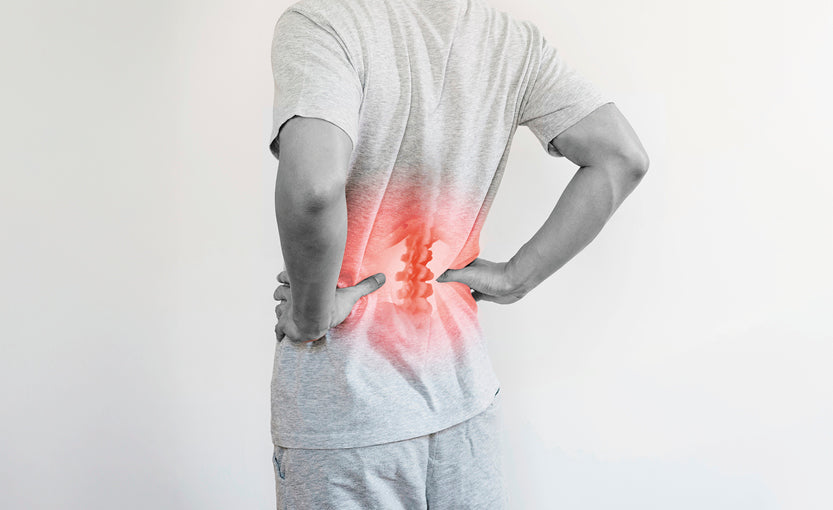It has been conservatively estimated that over 20% of the human population experience chronic pain.1 So, it’s no wonder that inflammation and nerve pain are two of the top concerns from people seeking complementary medicines. By the same token, while conventional treatments can offer symptomatic relief, they can also come with significant side effects that may impact our overall experience of vitality and wellbeing.
The good news for those experiencing ongoing pain, is that there are beneficial natural factors solutions. Two of the most rigorously studied natural compounds for supporting pain management are: curcumin, a potent constituent of turmeric, and palmitoytethanolamide (PEA). Each have demonstrated both analgesic (pain-relieving) and anti-inflammatory actions, with studies showing promising results in participants experiencing painful conditions like osteoarthritis and mild nerve pain.2,3 Due to their complementary actions, curcumin and PEA work very well together, targeting different biological aspects of pain as a ‘team’.
So, what are they and how do they work?
THERACURMIN®: POTENT AND ABSORBABLE CURCUMIN
Curcumin, an active compound found in the vibrant yellow root spice turmeric, has enjoyed a great deal of press thanks to its powerful anti-inflammatory properties. But unfortunately, curcumin has very poor bioavailability, meaning that only a tiny portion of what we ingest can be used in the body. This is because, at the same time as being poorly absorbed in the gut, our bodies move it along very quickly. In other words, it metabolises and eliminates curcumin shortly after ingestion.
Theracurmin® is a specific preparation of curcumin that makes the compound water-dispersible. This, in turn, significantly improves its absorption and bioavailablity while at the same time retaining its anti-inflammatory properties. Once absorbed, Theracurmin® can do its work on inhibiting inflammatory regulators, like nuclear factor kappa B (NF-κB) and reducing the production of pro-inflammatory cytokines like interleukins and tumour necrosis factor alpha (TNF-α). These actions can be particularly effective in helping to relieve the inflammatory symptoms of mild arthritic conditions.
PEA: ENDOCANNABINOID-LIKE POWER!
PEA is found in foods like peanuts and eggs. It, too can play an important role in pain management, this time via the endocannabinoid system. Here, it modulates inflammation by activating a nuclear receptor protein called peroxisome proliferator activated receptor alpha (PPAR-α), which then produces a range of anti-inflammatory substances in the body. PEA also reduces neuroinflammation and pain transmission by stabilising mast cells and microglia.
Several studies have shown that PEA supplementation can significantly reduce the intensity of mild nerve pain and improve quality of life.
THERACURMIN® AND PEA: WORKING TOGETHER FOR OPTIMAL RESULTS
With each year, the research builds to support these two fascinating compounds. Where curcumin works specifically on systemic inflammatory pain, PEA targets neuropathic pain. Combining the two is just what Theracurmin® Pain Relief has done, offering a supplemental approach to managing both inflammatory and mild nerve pain.





 >
>
 >
>
 >
>
 >
>